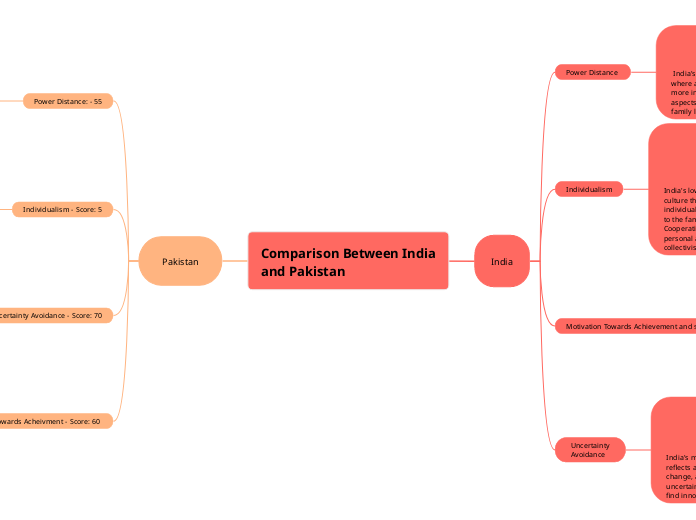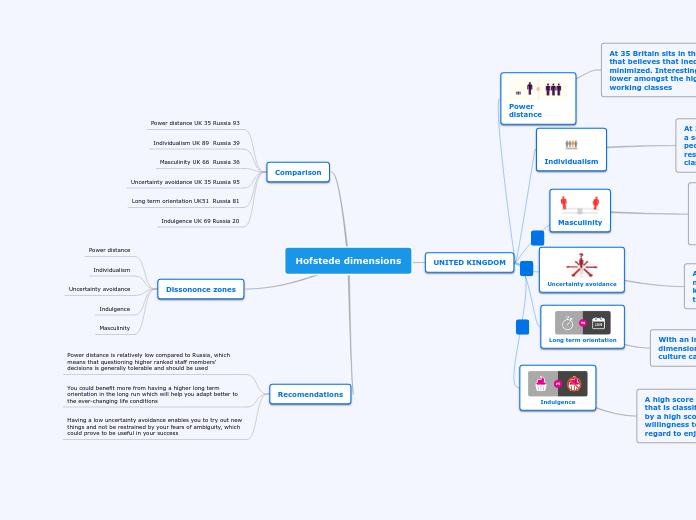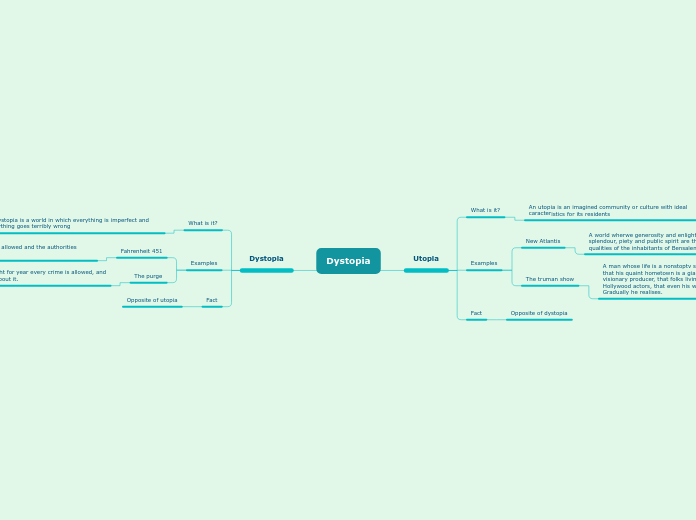av MB - 12TJ 704775 Rick Hansen SS 11 måneder siden
70
Comparison Between India and Pakistan
The cultural dimensions of India and Pakistan reveal distinct perspectives on uncertainty, achievement, individualism, and power distance. India’s medium-low uncertainty avoidance suggests a culture that embraces change and innovation, with a tolerance for risk-taking.









